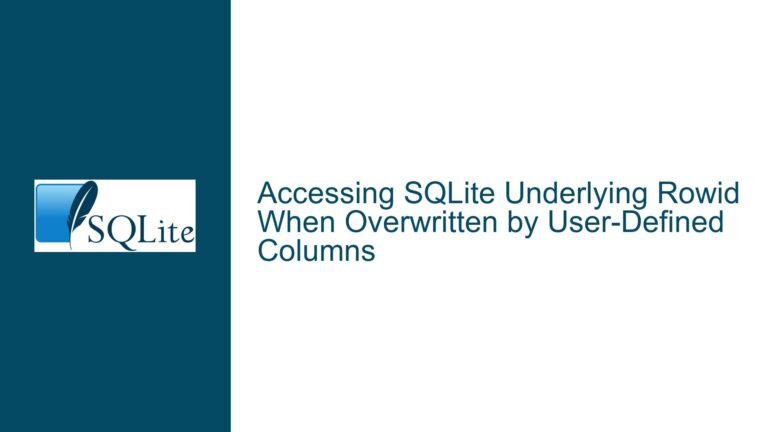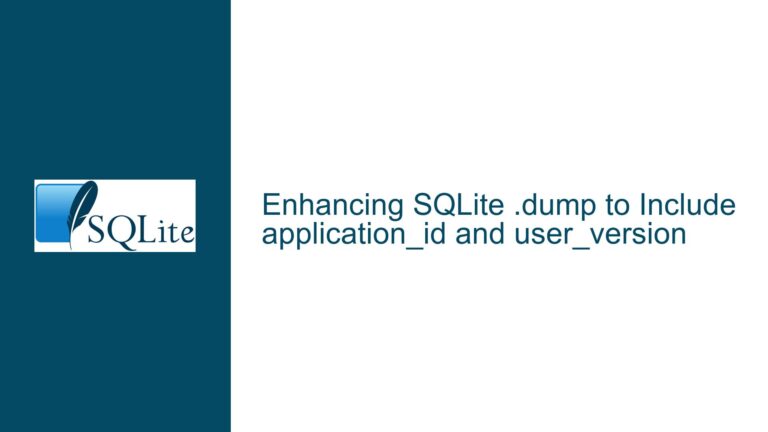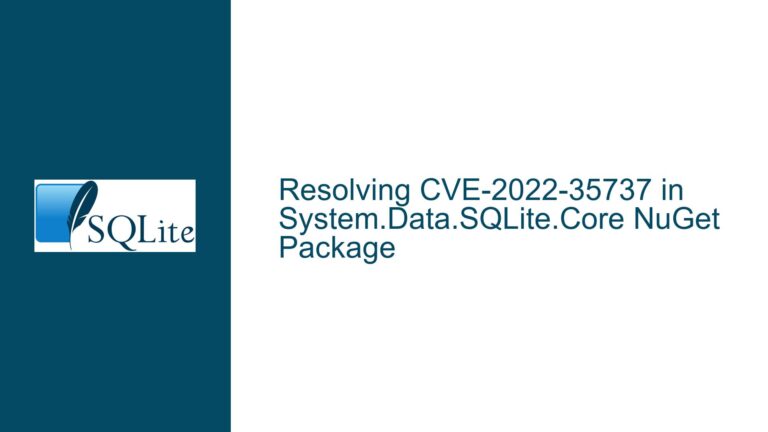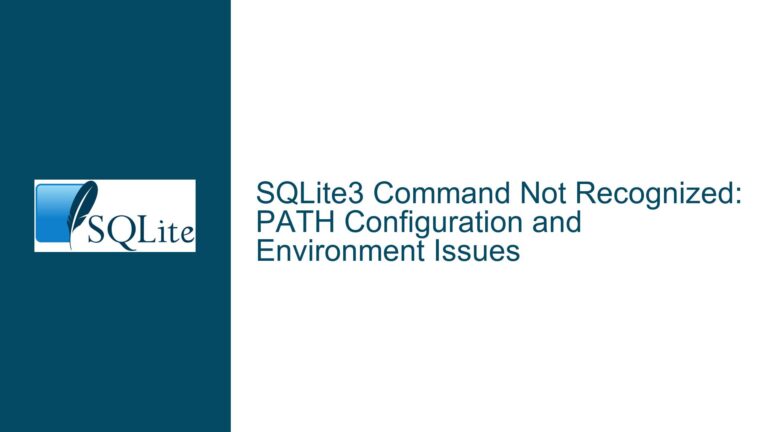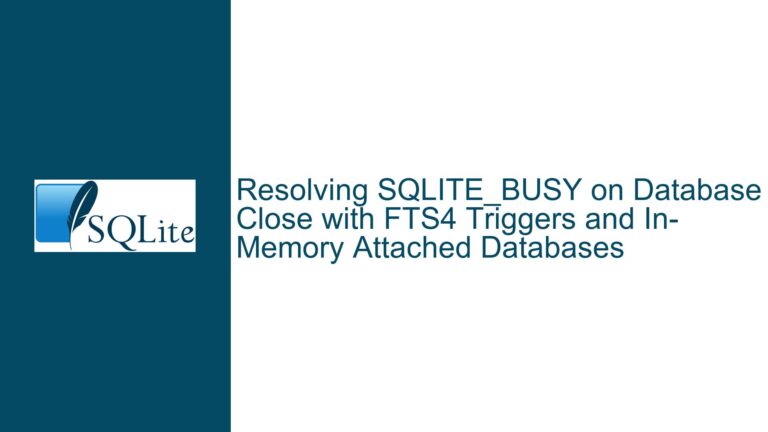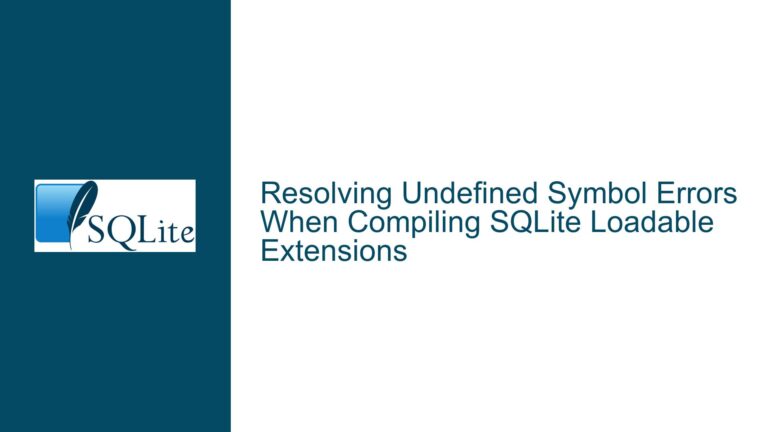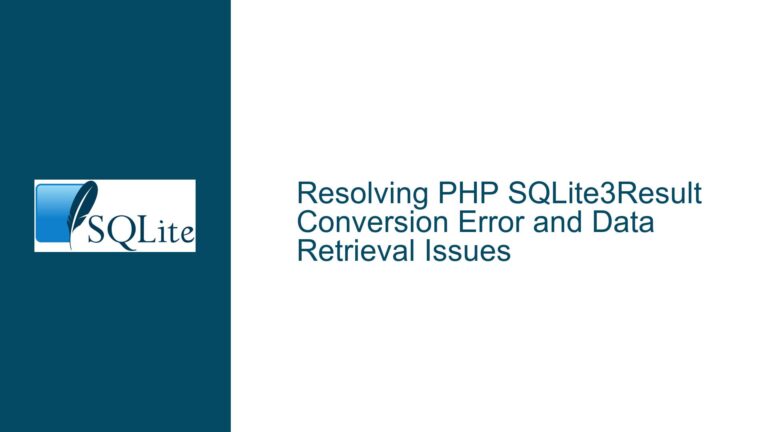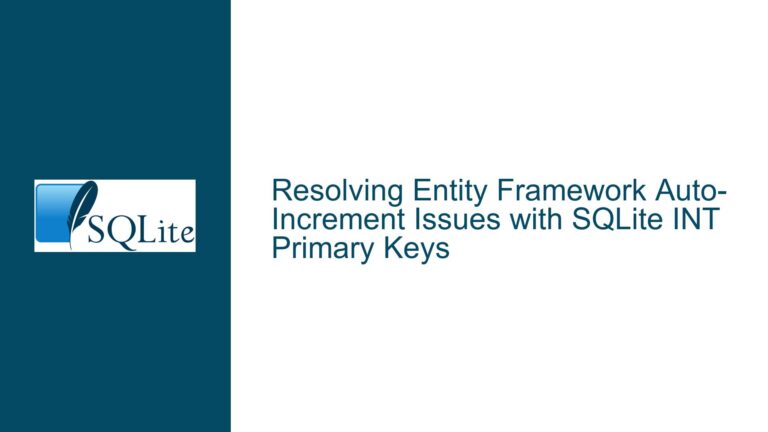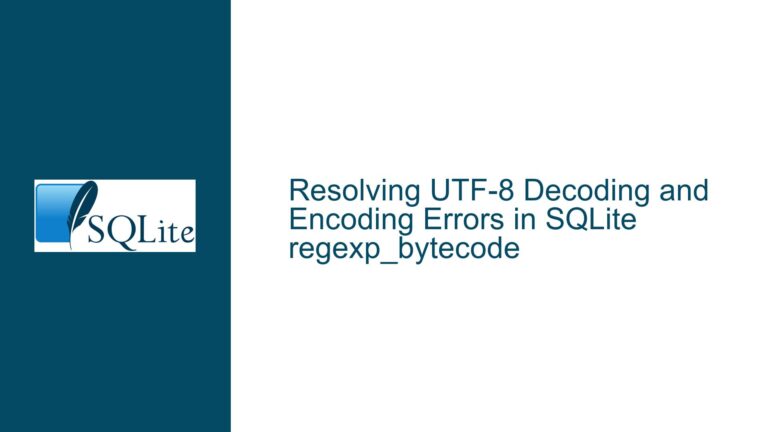Accessing SQLite Underlying Rowid When Overwritten by User-Defined Columns
Understanding the Core Problem: Overwritten Rowid Aliases in SQLite SQLite is a lightweight, serverless database engine that is widely used due to its simplicity and efficiency. One of its key features is the automatic inclusion of a rowid column for every table, which serves as a unique identifier for each row. This rowid can be…
